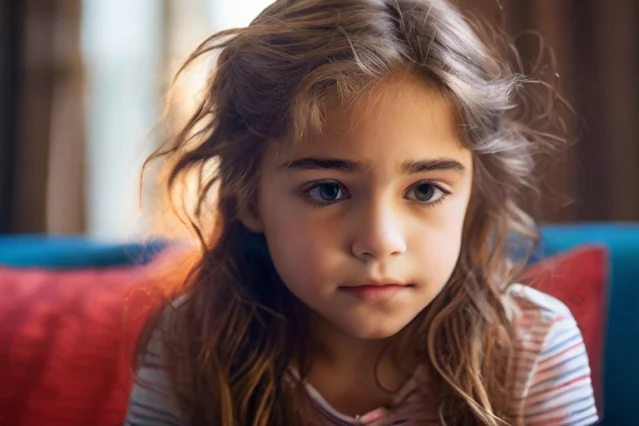Recognizing Anxiety and Depression in Children: A Guide for Parents and Caregivers: Children don't always express their emotions and struggles as directly as adults. It's crucial for parents and caregivers to be aware of the subtle warning signs that might indicate anxiety or depression in young minds. Recognizing these signs early can make a significant difference in supporting children's mental health and well-being.
(toc) #title=(Table of contents)
Symptoms of Anxiety in Children:
- Excessive
worry and fear: This can manifest in various ways, from constant
fretting about everyday events to specific phobias (like fear of dogs or
heights).
- Changes
in sleep and eating patterns: Difficulty sleeping, nightmares, loss
of appetite, or overeating can be signs of underlying anxiety.
- Physical
symptoms: Headaches, stomachaches, fatigue, and difficulty breathing
can be triggered by anxiety.
- Irritability
and anger: Anxious children may express their distress through
frequent outbursts or general bad temper.
- Social
withdrawal: Anxious children may avoid social situations or cling
excessively to familiar adults.
- Difficulty
concentrating: Anxiety can cloud a child's focus and make it hard to
learn or complete tasks.
Symptoms of Depression in Children:
- Persistent
sadness or low mood: This is a major indicator of depression and can
manifest as tearfulness, withdrawal, and lack of interest in activities
the child used to enjoy.
- Changes
in appetite and sleep: Similar to anxiety, depression can disrupt
sleep patterns and affect appetite, leading to overeating or loss of
interest in food.
- Loss
of energy and motivation: Depressed children may seem lethargic and
uninterested in participating in activities, even those they usually find
enjoyable.
- Negative
self-talk and low self-esteem: Depressed children may often criticize
themselves and express feelings of worthlessness or hopelessness.
- Changes
in physical appearance: Neglecting personal hygiene or having
frequent aches and pains can be signs of underlying depression.
- Thoughts of death or suicide: In severe cases, depressed children may express suicidal thoughts or engage in self-harming behaviors.
Riding
the Emotional Rollercoaster: A Guide to What is bipolar disorder?
Unraveling
the Mystery: Decoding the Chaotic Symphony of Bipolar Disorder Causes
Why
Are We Wired to Worry? Exploring the Risk Factors for Anxiety
Riding
the Emotional Rollercoaster: Demystifying Bipolar Disorder
What to Do If You Notice Warning Signs:
- Talk
to your child: Open communication is key. Create a safe and
supportive environment where your child feels comfortable expressing their
feelings and concerns.
- Seek
professional help: If you suspect anxiety or depression, consult a
therapist or child psychiatrist to get a diagnosis and develop a treatment
plan.
- Support
and reassurance: Let your child know you love and care for them
unconditionally. Provide positive reinforcement and celebrate their
achievements, however small.
- Educate
yourself: Learn about anxiety and depression to better understand
your child's experiences and offer effective support.
- Create
a healthy routine: Regular sleep, nutritious meals, and physical
activity can significantly improve both physical and mental well-being.
- Connect
with others: Encourage social interaction and participation in
activities your child enjoys. Building a strong support network can be
immensely helpful.
Remember, you're not alone. Early intervention and proper
support can make a world of difference in helping children overcome anxiety and
depression. Don't hesitate to seek help and work together with professionals to
guide your child towards a brighter, happier future.
Additional Resources:
- National
Institute of Mental Health: https://www.nimh.nih.gov/health/topics/child-and-adolescent-mental-health/index.shtml
- American
Academy of Child and Adolescent Psychiatry: https://www.aacap.org/
- Child
Mind Institute: https://www.childmind.org/






